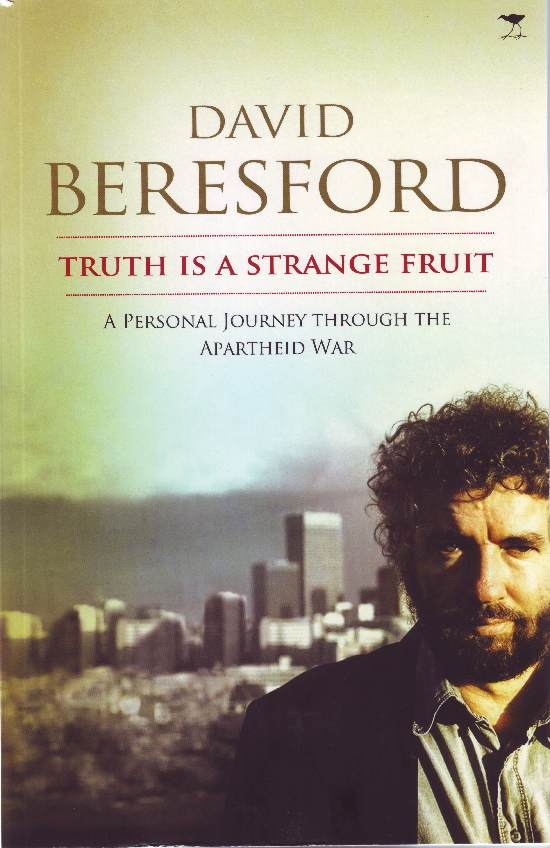David Beresford, veteran journalist for the Guardian, and author of the highly acclaimed account of the Irish hunger strike, Ten Men Dead, officially released his new work at a well-attended and vibrant event hosted by the Institute for the Advancement of Journalism in Johannesburg on 24 August 2010. The event was attended by UK-based David Wolfe, the son of John Harris, and his family. Wolfe addressed the packed room, illuminating the rapt audience on the extraordinary circumstances of his father's life.
Truth is a Strange Fruit: A Personal Journey Through the Apartheid War has been described by Jeremy Gordin as "stunning, frightening, and moving." Beresford places himself at the helm of a work that describes the chilling fate of John Harris - or ‘the Station Bomber' - who was the first, and only, white person to be hanged for politically motivated crimes by the Apartheid government. He was one of hundreds, which may make many wonder why this tale is special, and why it should be told. For Beresford, there is the sense that Harris had yet not been redeemed, and in exploring his life, his motives, and his actions, the book attempts to lay this to rest. The book provides some release but it does not enable such catharsis for either the author or his protagonist: instead, it reveals the inherently incomplete nature of transitional justice processes such as South Africa's Truth and Reconciliation Commission (TRC), as it is revealed that the station bombing for which Harris was executed was not even investigated during this Commission. 
The John Harris Collection is one of SAHA's newest collections. The collection consists of the various documents pertaining to the John Harris court case, his prison file and various newspaper clippings. Most of the documents are photocopies of the original documentation as well as digital scans.
Frederick John Harris, born in 1937, was a teacher as well as an executive member of the Liberal Party of South Africa (LPSA). He also became the chairman of the South African Non-racial Olympic Committee. He worked tirelessly against the exclusion of segregated South African teams from the Olympics. Harris was banned in February 1964, which prevented him from working with the LPSA and the Non-racial Olympic Committee.
The African Resistance Movement (ARM) was established in 1964 with the aim of overthrowing the apartheid regime in South Africa. John Harris became a member of the ARM, but when it was dismantled, most of his colleagues were jailed or fled the country. Harris decided to stage a demonstration by placing a bomb at the Johannesburg station. He contacted the police to clear the area but they did not do so, and when the bomb detonated, one elderly woman died and a dozen others were injured. John Harris was arrested and sentenced to death on the 23rd March 1964.





